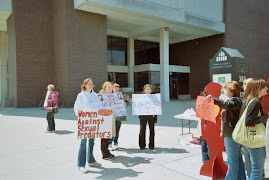Virginia takes overdue steps to keep child abusers out of schools
Virginia has 19 fewer teachers on its roll of prospective educators.
Good.
The state Department of Education last month deemed these former teachers unfit for the classroom because they have been convicted of crimes, including child abuse, rape and child pornography. It revoked six licenses, and another 13 were surrendered when the state told their holders they would be revoked. On the list were 13 teachers who worked in Hampton Roads, including one from Hampton's Kecoughtan High School.
Compare that to the last eight years, when the state took, on average, just four licenses a year.
The new push to make sure known criminals aren't in the classroom is welcome. But it's alarming to find that Virginia has not been conscientious in patrolling the ranks, and in making sure that educators who abused children didn't get another chance.
Some school districts have done no better. In an ugly variant of the practice known within the system as "pass the trash," some districts are content to get a known abuser out of their schools, voluntarily or otherwise. If the case doesn't go to court, they may want to keep it quiet. If it does, they don't alert the state licensing office. That should be required in Virginia, but it's not.
Protecting children has to be the business of every school. That's the way to prevent tragedies like the one that happened in central Virginia when a teacher who was accused of sexually abusing three girls in Bedford County was later hired by adjacent Nelson County, where he molested more children. The schools didn't communicate, and the state didn't know to yank his license.
The problem of sexually abusive teachers came to light not because educational bureaucracies figured it out, but because The Associated Press did a big story on it. It uncovered, across the nation, 2,750 educators whose licenses were revoked, denied, surrendered or sanctioned over a four-year period because of sexual misconduct, typically with students. The offenses ranged from rape to inappropriate relationships.
And experts think most sexual misconduct by teachers goes unreported, and even when it is, many teachers go unpunished. That AP story revealed the scope of what was to many communities a dirty little secret.
So whether Virginia's Board of Education takes the initiative or responds to a need identified by someone else, this is a welcome step.
There's something particularly alarming when children are abused by people who hold the position of trust and authority that teachers enjoy. But the truth is: Some perverted and dangerous people are drawn to children, and they go where children are. The people convicted in this area recently for child sex abuse and child pornography have included teachers, former teachers, coaches and a teacher's aide.
As it stands in Virginia, there's no requirement that schools or licensing agencies are notified if teachers are convicted of crimes against children. The General Assembly is considering a bill that would require courts to inform local school districts and the state if a licensed educator is convicted of a felony related to child abuse or molestation or drugs. Child protective service agencies would have to report if they find a complaint of child abuse or neglect against an educator founded. And the state would have to revoke the teaching license of anyone who is fired or resigns as a result of the conviction or founded complaints.
Another bill would correct another obvious problem: There's no requirement that the state, before issuing a license, or a school district, before hiring someone, check crime records or child abuse registries.
The House and Senate should sort out their differences, pass these bills and send them to the governor to be signed.
Because our schools are no place for people who have demonstrated that they have a taste for abusing or molesting children.



No comments:
Post a Comment